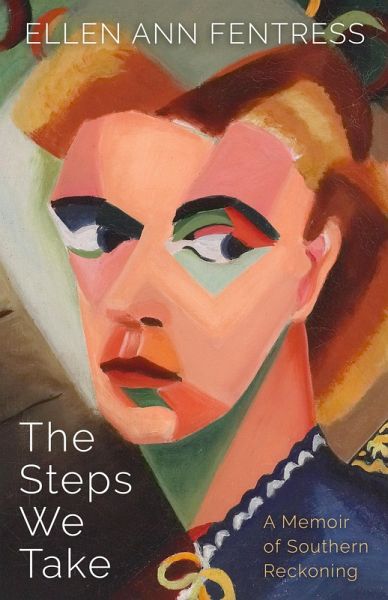
The Steps We Take (eBook, ePUB)
A Memoir of Southern Reckoning
Versandkostenfrei!
Sofort per Download lieferbar
13,95 €
inkl. MwSt.
Weitere Ausgaben:

PAYBACK Punkte
7 °P sammeln!
Chosen as Mississippi's 2024 Great Read for Adults by the Mississippi Center for the BookEllen Ann Fentress is a veteran writer for the New York Times, the Washington Post, and The Atlantic. She's also a seasoned southern woman, specifically a white Mississippi one. "Women do a lot for free, no matter the era, no matter the location," she observes in The Steps We Take: A Memoir of Southern Reckoning. As a good southern woman, Fentress felt a calling to help others. As a teenager, she volunteered as a March of Dimes quarter collector and sang hymns at a soup-and-salvation homeless shelter. Late...
Chosen as Mississippi's 2024 Great Read for Adults by the Mississippi Center for the Book
Ellen Ann Fentress is a veteran writer for the New York Times, the Washington Post, and The Atlantic. She's also a seasoned southern woman, specifically a white Mississippi one. "Women do a lot for free, no matter the era, no matter the location," she observes in The Steps We Take: A Memoir of Southern Reckoning. As a good southern woman, Fentress felt a calling to help others. As a teenager, she volunteered as a March of Dimes quarter collector and sang hymns at a soup-and-salvation homeless shelter. Later, she married, reared two daughters, renovated a 1941 Colonial home, practiced her French, and served as the bookkeeper for her husband's business. She followed the scripts she was handed by society.
But there were the convenient lies and silences that she and most southern-make that American-white women have settled on in the name of convention and, to be honest, inertia. For Fentress, her dodges both behind her front door and beyond became impossible to miss. Eventually, along with claiming a personal second act at midlife, she realized the most urgent community work she could do was to spur truth-telling about the history she knew well and participated in. She was one of the nearly one million students in the South enrolled in all-white "segregation academies," a sweeping movement away from public education that continues to warp the Deep South today. To document and engage with this history, she founded the Admissions Project: Racism and the Possible in Southern Schools, which has been featured in the Washington Post, Slate, Forbes and other publications.
The Steps We Take tells how one woman reckons with both a region's history and her own past. Through a lens ranging from intimate to the widely human, through moments painful and darkly comic, Fentress casts a penetrating light on what it means to be a white southern woman today.
Ellen Ann Fentress is a veteran writer for the New York Times, the Washington Post, and The Atlantic. She's also a seasoned southern woman, specifically a white Mississippi one. "Women do a lot for free, no matter the era, no matter the location," she observes in The Steps We Take: A Memoir of Southern Reckoning. As a good southern woman, Fentress felt a calling to help others. As a teenager, she volunteered as a March of Dimes quarter collector and sang hymns at a soup-and-salvation homeless shelter. Later, she married, reared two daughters, renovated a 1941 Colonial home, practiced her French, and served as the bookkeeper for her husband's business. She followed the scripts she was handed by society.
But there were the convenient lies and silences that she and most southern-make that American-white women have settled on in the name of convention and, to be honest, inertia. For Fentress, her dodges both behind her front door and beyond became impossible to miss. Eventually, along with claiming a personal second act at midlife, she realized the most urgent community work she could do was to spur truth-telling about the history she knew well and participated in. She was one of the nearly one million students in the South enrolled in all-white "segregation academies," a sweeping movement away from public education that continues to warp the Deep South today. To document and engage with this history, she founded the Admissions Project: Racism and the Possible in Southern Schools, which has been featured in the Washington Post, Slate, Forbes and other publications.
The Steps We Take tells how one woman reckons with both a region's history and her own past. Through a lens ranging from intimate to the widely human, through moments painful and darkly comic, Fentress casts a penetrating light on what it means to be a white southern woman today.
Dieser Download kann aus rechtlichen Gründen nur mit Rechnungsadresse in A, D ausgeliefert werden.













